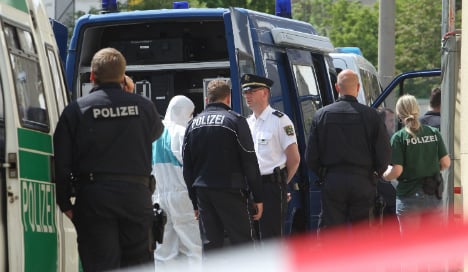Architecture student Yanjie Lie, 25, was found dead on Friday May 13th within 100 metres of the student accommodation where she lived in Dessau, Saxony-Anhalt.
But officers were able to secure traces of at least one other person's DNA at the crime scene.
Armed with this forensic evidence, police were able to find a match and have now made an arrest, Bild reported on Tuesday.
Police spokespeople were not immediately available to confirm the reports on Tuesday afternoon.
The accused was slated to appear before a judge on Tuesday who would decide whether to keep him in custody, the tabloid reported further.
Both the man under arrest and a second suspect are believed to be Germans who live near the scene of the crime.
Local students, including many from China, last week attended a memorial for their dead classmate along with Dessau mayor Peter Kuras and representatives from the Chinese embassy in Berlin.
Students from all over the world should continue to feel welcome in Dessau, Kuras told mourners at the ceremony.
“Everyone was sad, and we all hoped that the culprits would be caught,” Dessau-based blogger and photographer Jing Zhou, who covered the event in detail in text and images, told The Local.
The murder was the first time Zhou had heard of a Chinese person falling victim to a crime in the small city at the junction of the Elbe and Mulde rivers.




 Please whitelist us to continue reading.
Please whitelist us to continue reading.
Member comments